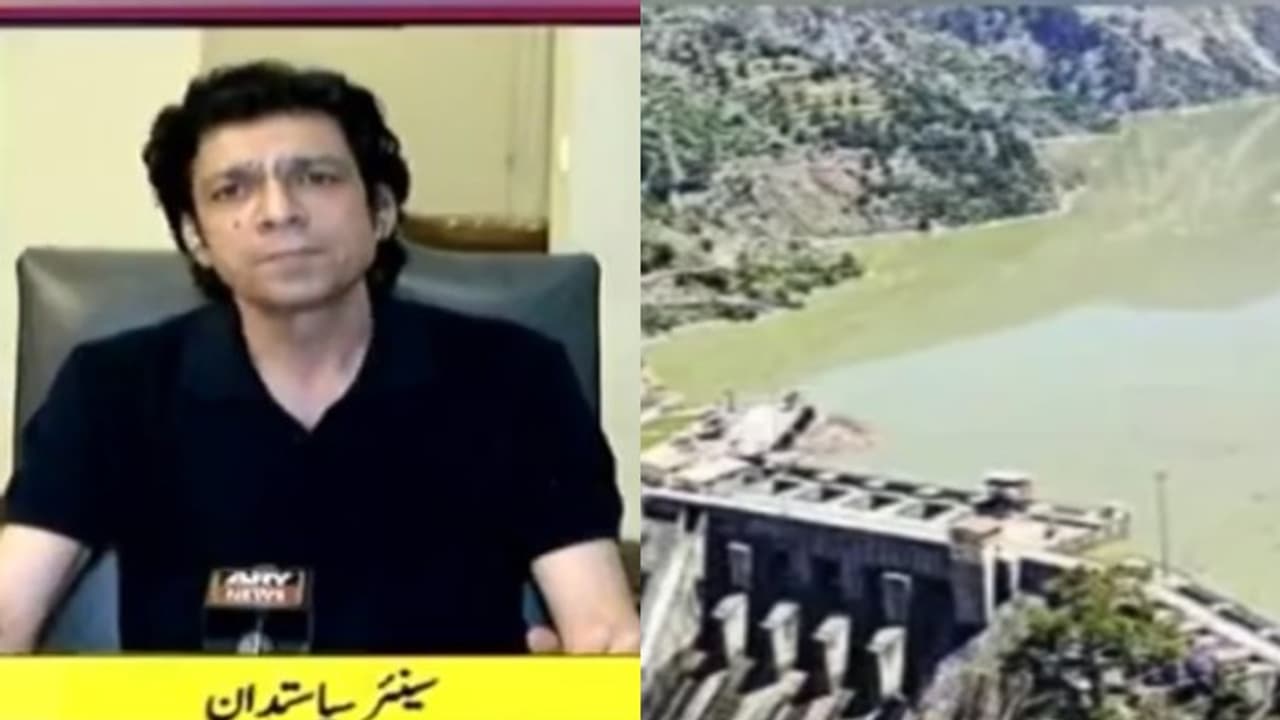A Pakistani senator has threatened India with bloodshed after New Delhi suspended the Indus Waters Treaty. The senator warned that any move to block Pakistan’s water would be met with aggressive retaliation.
A Pakistani senator has issued a provocative threat against India after New Delhi suspended the Indus Waters Treaty, warning that Pakistan would ‘play Holi with their blood’ if India blocks the flow of water.

Speaking reportedly on a TV news channel show, the senator declared that water is not coming from a tap that India can simply shut off. He said if any problem arises over water, Pakistan would be the first to take action. "We will play Holi with their blood. We are ready to respond with double the intensity," he said.
The senator also referred to the 2019 capture of Indian Air Force officer Abhinandan Varthaman, saying, "Last time we gave tea to their officer. This time, the response will be very different." He further claimed that Pakistan has already "strategically locked" India by stopping trade, closing airspace, and hurting India economically without launching an airstrike. "We attacked them without firing a bullet, and they suffered losses," he said. The senator stressed that Pakistan has carefully analysed potential threats and is prepared for any future conflict, warning that a war between India and Pakistan would impact the entire world.
The angry comments came after India took a historic decision to suspend the 1960 Indus Waters Treaty, a move seen as a direct response to the deadly terror attack in Pahalgam that killed 26 people, mostly tourists.
Union Minister of Jal Shakti CR Paatil said that the Modi government will ensure not even "a drop of water" flows into Pakistan. Patil announced short-term, mid-term, and long-term plans to stop the flow of Indus River waters, including expanding dam capacities along the river basin to store more water.
India formally served Pakistan a notification on Thursday, stating that all treaty obligations were being held "in abeyance." This suspension means India can now build dams or take other actions along the Indus River without consulting Pakistan.
In her letter to Pakistani authorities, India's Water Resources Secretary Debashree Mukherjee said that Pakistan’s support for terrorism in Jammu and Kashmir was a violation of the spirit of the treaty. "The obligation to honour a treaty in good faith is fundamental," she wrote, adding that Pakistan’s actions had left India with no choice.
Meanwhile, Pakistan officially rejected India's suspension of the treaty and warned that blocking its rightful water share would be seen as an "act of war." The Indus Waters Treaty, signed in 1960 after nine years of negotiations, has long been regarded as one of the world’s most successful water-sharing agreements.
The suspension of the treaty is part of a series of tough actions taken by India against Pakistan, which also include the closure of the Attari land transit post, cancellation of Pakistani visas, expulsion of Pakistani military officials, and the downsizing of diplomatic staff.
These measures come in the wake of the horrific terror attack in Pahalgam, Jammu and Kashmir, where 26 people — mostly tourists — lost their lives after Pakistan-based terrorists opened fire at a popular tourist meadow.
The situation has raised fears of further escalation between the two nuclear-armed neighbours, with the water dispute now emerging as a major new flashpoint.


